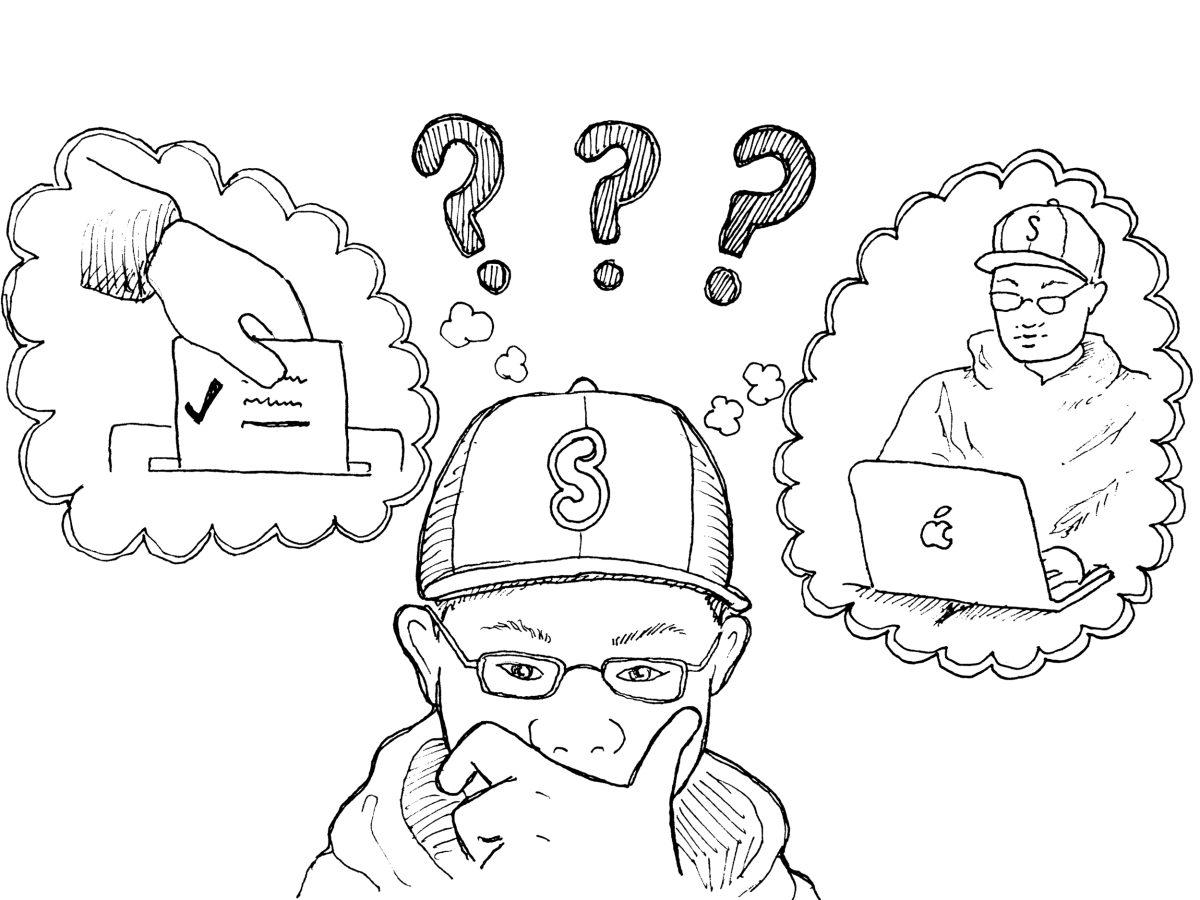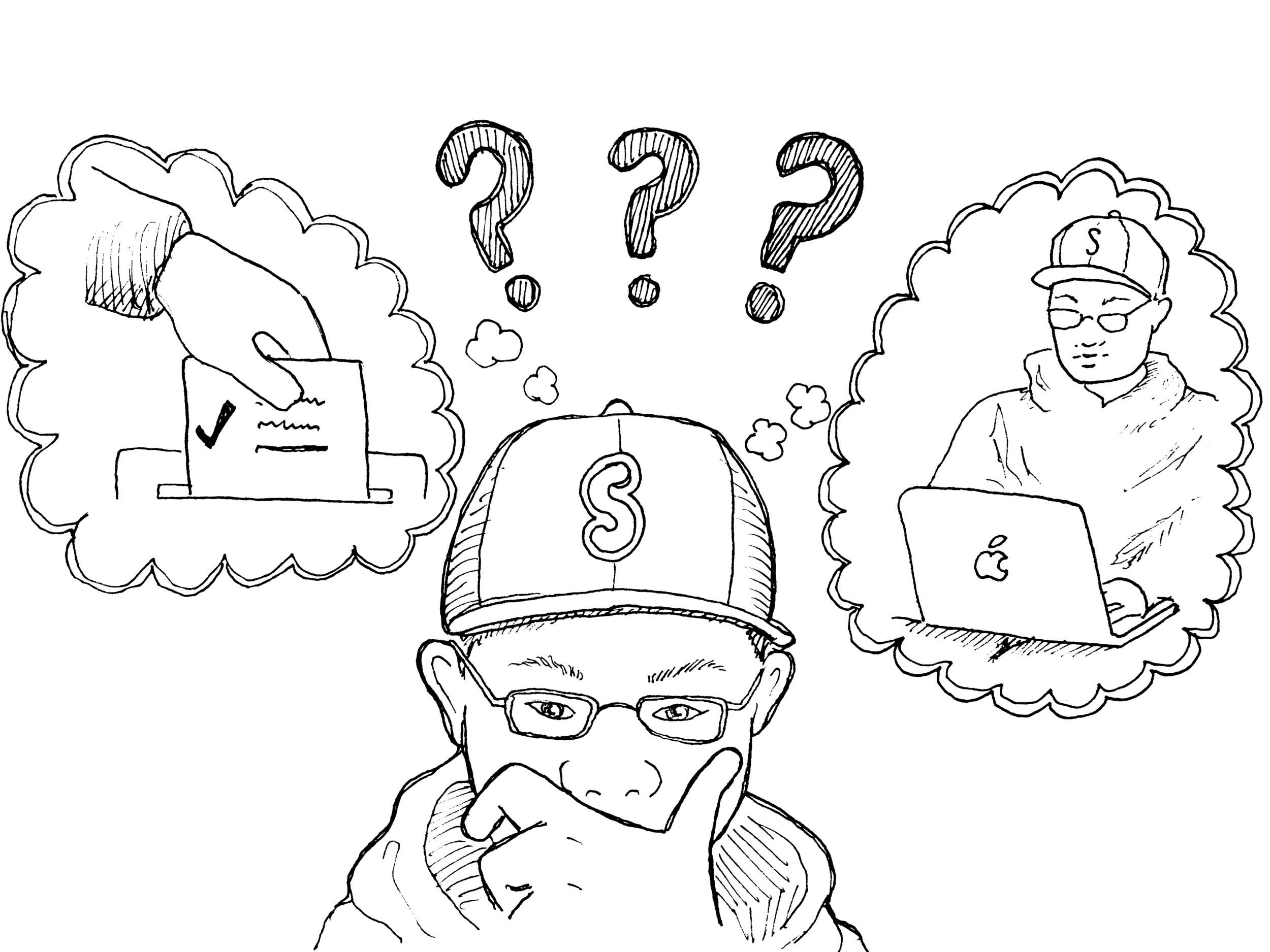STAR // Julia Albo
With national presidential election antics in full swing, each candidate is surely asking themselves, “what can I do to get the vote?”
We’ve seen Senator Bernie Sanders advocate for free college tuition. Secretary of State Hillary Clinton has expressed plans to eliminate tuition loan debt after graduation. The strong push of these ideas is the result of of one thing: Winning the millennial vote.
According to the U.S. Census Bureau, millennials now outnumber the baby-boomer generation, making the millennial vote the one to pursue. But there’s one more hurdle – millennials actually need to take the initiative to vote.
It’s no secret our generation has had trouble getting to the polls. According to a study by The Center for Information and Research on Civic Learning and Engagement, only 19.9 percent of 18- to 29-year-olds voted in the midterm elections of 2014. This was the lowest millennial turnout ever recorded.
There are several theories as to why this is. Some millennials may assume their vote doesn’t count in the long run. Others say there aren’t any candidates worth voting for. We’ve all heard the claim the younger generation is just too self-involved or uninterested in politics to vote.
While any of these theories may be true to some extent, the numbers don’t lie. With more of a potential to swing the vote than the baby-boomers, it’s time we start using this advantage to shape government.
Millennials as a whole tend to think differently than their parents. While previous generations valued the process of attaining “the American Dream,” (getting a well-paying job, getting married, buying a house, having babies and so on) Millennials value happiness in a less traditional sense. We are more concerned about social justices and peace than we are with traditional values and the growth of the economy.
This sets us apart from our baby-boomer counterparts. It’s not that we are uninterested in politics. We just aren’t as interested in what the current political system values.Regardless, the cheesy line “we can make a difference” still applies. We’ve got the numbers. We’ve got different ideas. We just need the motivation.
Sure, it’s possible that a candidate who shares our same values hasn’t emerged yet, but our silence at the polls could result in the wrong presidential candidate being elected. Afterall, shouldn’t the inheritants of this nation make sure we have a say in who represents us in the White House for four or more years? Letting our indifference trump reason is something we as millennials need to change. Even electing the lesser of two evils is far better than sitting back and letting the wrong person come into office.
But there are promising signs of change here at Sonoma State. In the recent Associated Students election for Sonoma State University, 23 percent of students voted, which is considerably higher than Spring 2015’s AS election that only saw 16.4 percent of students vote.
In addition to signaling a potential increasing interest by students in elections, the result showed the power of a single vote. AS President Elect Emily Hinton won with 51.2 percent of the vote.
This is roughly a 50-vote difference between her and her opponent, current AS Vice President Kate Chavez. A small number of people could have completely changed the election outcome, proving that an individual vote really can add up and make a difference.
If we as a group applied this growing motivation and faith in our vote to the presidential election in November, the millennials could easily decide the vote. That is, if we decided to.
The last day to register to vote in the June 7 primary in California is May 23. For more information, go to sos.ca.gov/elections/voter-registration. Make your vote count.




































